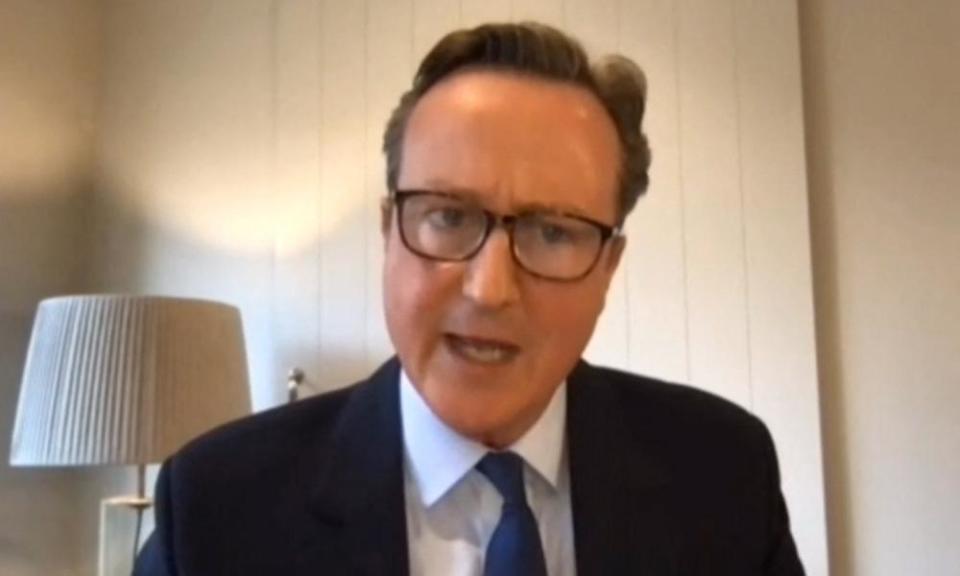David Cameron’s Greensill grilling: the key quotes

MPs have grilled David Cameron about his lobbying for the now-collapsed financial firm Greensill Capital. Here are the key quotes from his evidence.
I was paid an annual amount, a generous annual amount, far more than what I earned as prime minister … The fact that I have this economic interest … that’s important, but I don’t think the amount is particularly germane to answering those questions, and as far as I’m concerned it’s a private matter.
Cameron dodged questions throughout the hearings about how much he was paid, only to say that he was on the company’s payroll. All he would disclose is that it was more than his £150,000 salary as PM – and that reports he stood to gain £60m were “absurd”. Tellingly, he would not guide on whether his annual fee was more than £1m.
I have spent most of my adult life in public service. I believe in it deeply. I would never put forward something that I didn’t believe was absolutely in the interests of the public good. I did not believe in March or April last year when I was doing this contact there was a risk of Greensill falling over.
Perhaps the key question that hangs over Cameron’s head is how much he knew the company was in a precarious state when he lobbied his former colleagues and senior officials. Cameron strenuously denied that he did. Greensill was placed into administration in March, threatening thousands of UK jobs at Liberty Steel, which was dependent on its finance.
Anyone I know even at all well, I tend to sign off text messages with ‘love DC’ – I don’t know why, I just do. My children tell me that you don’t need to sign off text messages at all and it’s very old fashioned and odd to do so.
The questioning by Harriett Baldwin over Cameron’s use of “Love DC” in a text to the Treasury’s Tom Scholar was toe-curling, but revealing. Cameron said it was how he signs off to everyone – but admitted it showed there was a closer relationship with Scholar after it was pointed out that he did not sign off messages in that way to other officials – or to his former friend the chancellor of the duchy of Lancaster, Michael Gove.
It was a time of extraordinary crisis and so it was a time when I think it was appropriate to use phone and text over email and letter. I think, in future, one of the lessons I take away is prime ministers should only ever use letter or email and should restrict themselves far more.
Cameron seemed to acknowledge that the volley of messages he sent to officials, from the chancellor, Rishi Sunak, to Gove, multiple other ministers, to senior officials at the Treasury, No 10 and the Bank of England, might have been too full on. Labour’s Angela Eagle said Cameron’s behaviour was “more like stalking than lobbying”.
Just because a business goes into administration doesn’t mean that everything was wrong, it doesn’t mean the whole thing was necessarily a giant fraud.
Throughout his evidence Cameron did not disavow Greensill – but said he believed wholeheartedly in the company, especially its offer to small businesses and how supply chain finance could be a way of tackling the issue of payday loan companies that charge exorbitant rates of interest. While that might have been some incentive, the fact he stood to gain potentially millions from the company was also likely to have been a factor.
I think I met him twice while I was in Downing Street and I can absolutely confirm at no stage did he ever suggest that I would go and work with him or for him afterwards. That happened after I left office.
Huge questions have been raised about the role of Lex Greensill while he was an adviser in Downing Street, brought in by the late former cabinet secretary Sir Jeremy Heywood. Cameron defended Heywood robustly while denying he had had much personal contact with Greensill in No 10 – though the pair clearly became close, he refers to Greensill as “my friend” several times in the messages he disclosed.

 Yahoo Finance
Yahoo Finance 